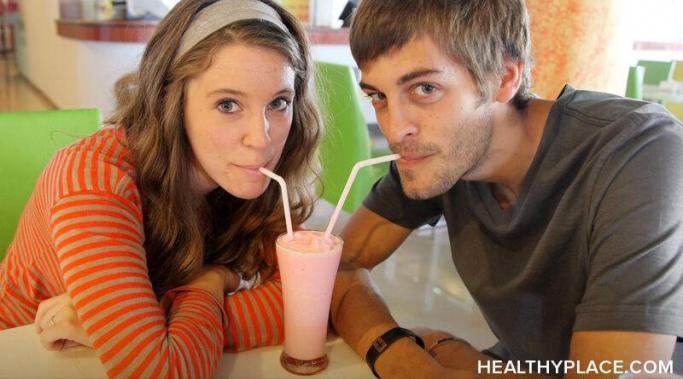Blogs
Coping with internal conflicts in dissociative identity disorder (DID) when parts disagree with you or each other is an important DID coping skill. After all, relationships can be difficult. Occasionally, people have arguments with friends and loved ones which causes friction and disagreements. Often, the same challenges present themselves within the systems of those with DID. Parts can experience friction and conflict and have arguments with other members of the system. Without working to understand and meet the needs of other parts, an internal conflict in DID can ensue while each alter attempts to have his or her own wants met.
At what point do you leave a verbally abusive partner? The point where you walk away from a violent partner could be a bruise, a broken rib, or even fear for your life, but how do you know when it's time to leave your abuser when the abuse is verbal? The signs of psychological or emotional abuse are often easy to dismiss, meaning we ignore the glaring red flags that tell us to get out. Nevertheless, there comes a point when the abuse gets to be too much and we just can't take it anymore. Perhaps we mentally withdraw from our verbally abusive partner, start making arrangements for a life elsewhere, or leave altogether. Your breaking point when you leave a verbally abusive partner is the moment you're forced to concede the situation is abusive -- but how do you know when enough is enough?
Complex posttraumatic stress disorder (C-PTSD) and perfectionism often occur together. What drives someone with C-PTSD towards clinically significant perfectionism? Generally speaking, perfectionism becomes clinically significant when it results in an excessive or unrealistic need to perform to exceedingly high, self-imposed standards. The drive for perfection is so strong that it can interfere with work, education or relationships. For individuals with C-PTSD, the need for absolute excellence can become a means of dealing with fear and anxiety created by ongoing trauma. Let's examine how trauma drives these unrealistic expectations, and how to set more realistic goals.
Getting organized is one of the best coping techniques I use to ease my anxiety. I was diagnosed with schizoaffective disorder in my early 20s, and I also struggle with anxiety. Anxiety can be crippling sometimes – to the point that I don’t want to leave the house and I avoid activities. I certainly don’t have a solution, but I’ve found one simple trick that relaxes me a bit – getting organized eases anxiety.
Society's expectations have pressured me to live in a certain way for as long as I can remember. There are specific life events and accomplishments that society seems to expect of everyone. Examples are: graduate high school, go to college, establish a good career, get married, have children, and the list goes on. Society's expectations fuel my anxiety and depression, and here's why.
Successfully treating attention-deficit/hyperactivity disorder (ADHD) in adults involves a lot of trial and error. Though I wish that choosing the best ADHD treatments were a simple one-off, finding the right medication, therapy, and coping skills requires perseverance and adaptability. There is no one-size-fits-all treatment. Unfortunately, this process is often counterintuitive for those with ADHD, so I will provide a few tips for coming to terms with the day-to-day necessity of trial and error for successfully treating ADHD in adults.
Saying goodbye has never been easy for me. Usually, I would obsess over my decision to stop blogging on this website. Unfortunately, I just don’t have the time to devote to writing that I would like because of my full-time job and family responsibilities.
Losing medical insurance can be devastating for people with mental illness. Even a change in insurance coverage can alter, or even endanger, the lives of people suffering mental illness as long-time relationships with medical providers are destroyed and in-depth, personalized medical knowledge is lost. Losing medical insurance can be very tough.
Do online dating benefits apply to people who are struggling with anxiety and/or depression? Many people say they don't. Because of my anxiety and fear of rejection, I avoided online dating for a long time. However, after I tried it, I found that online dating actually benefits me because it's helping me learn how and when to form comfortable relationships. Read this article to learn about the four online dating benefits I discovered.









